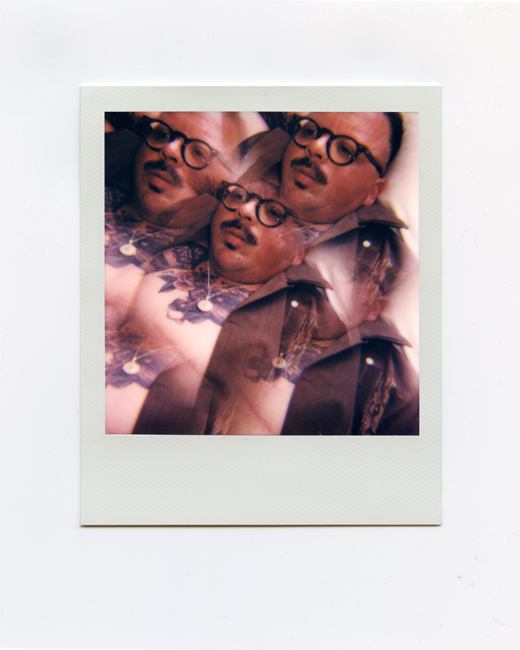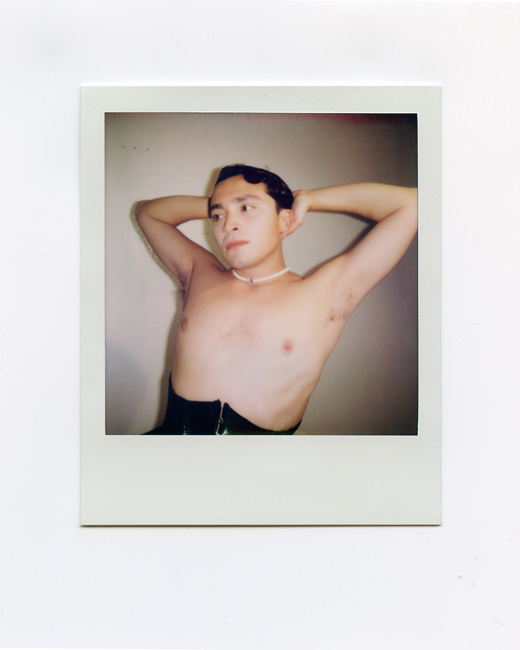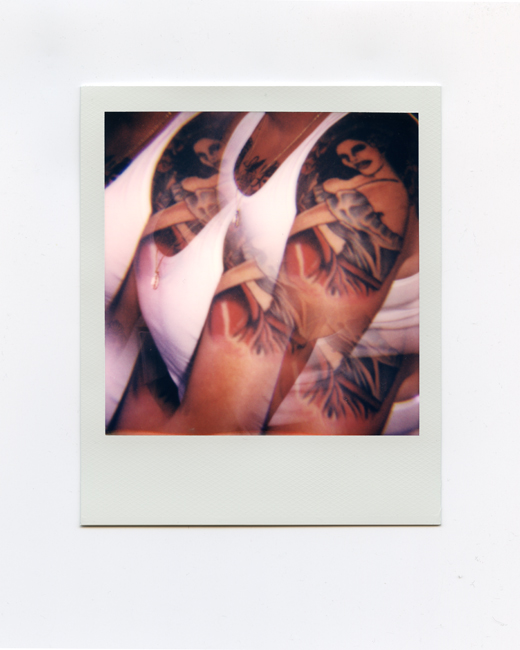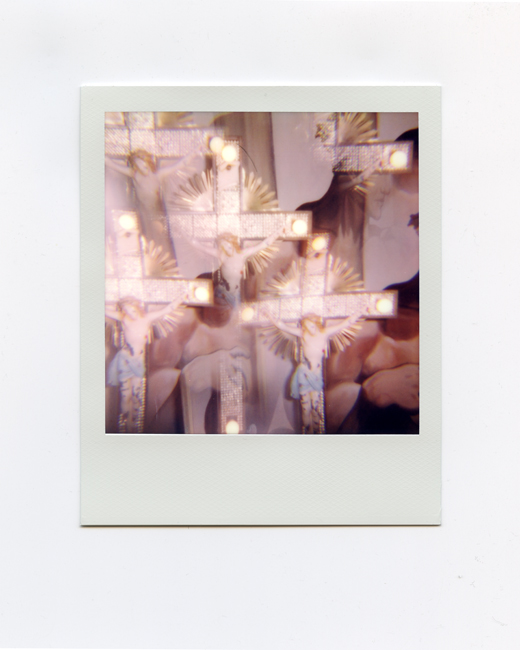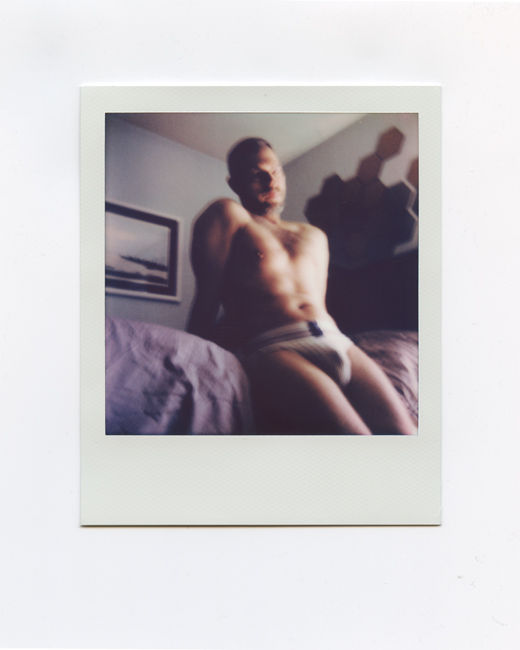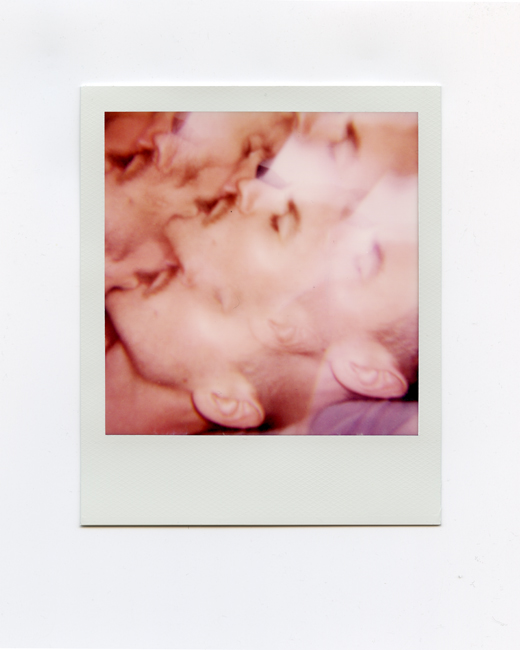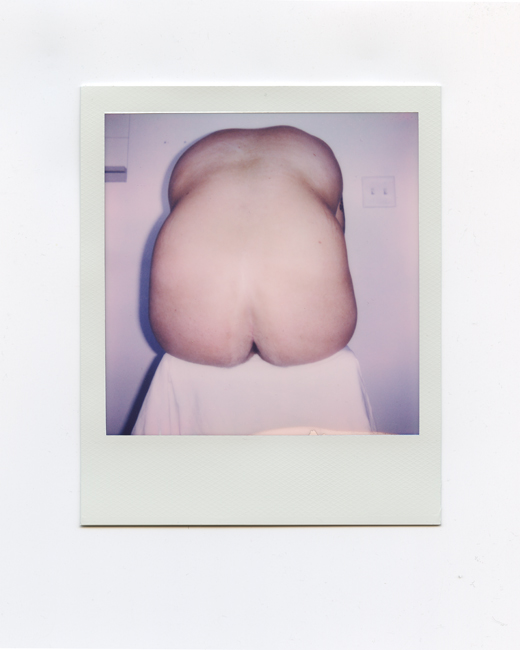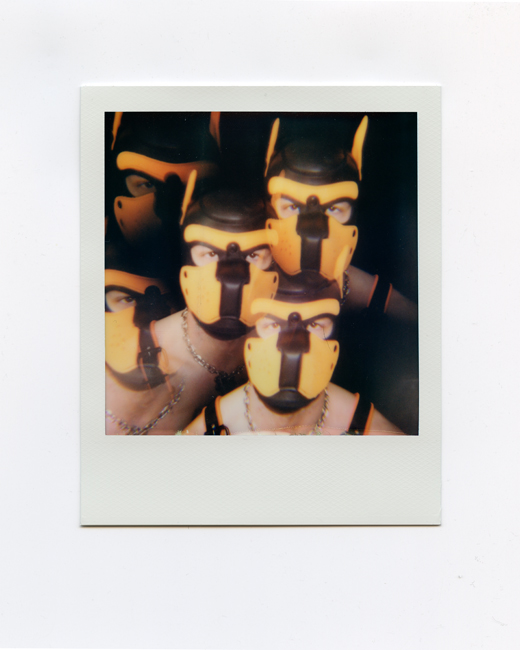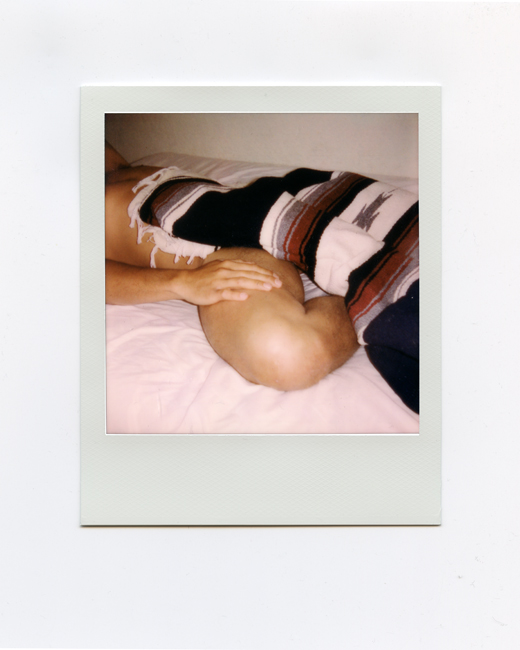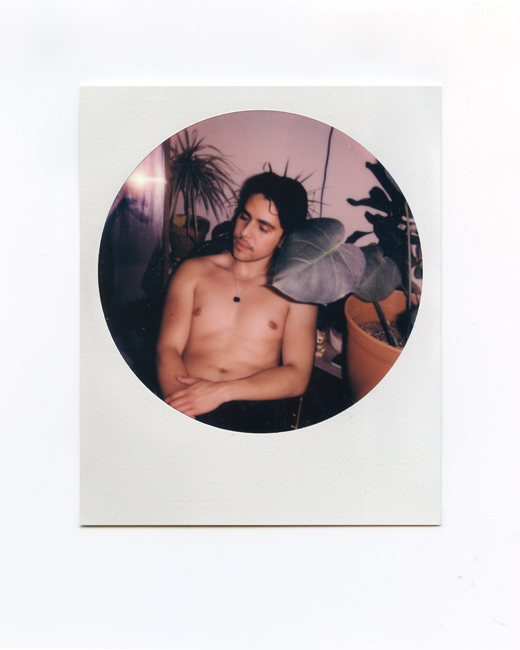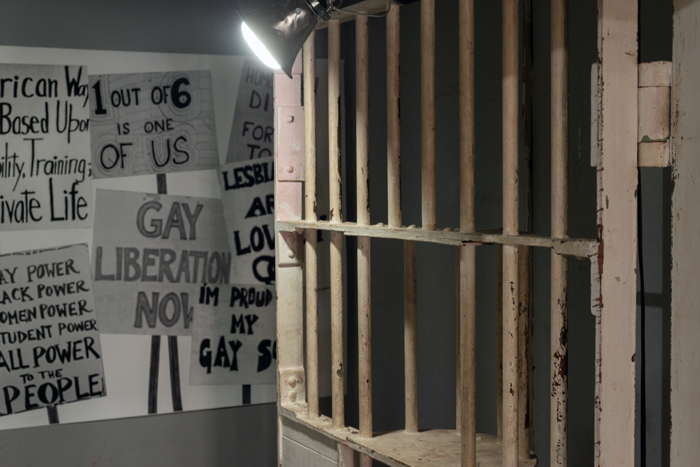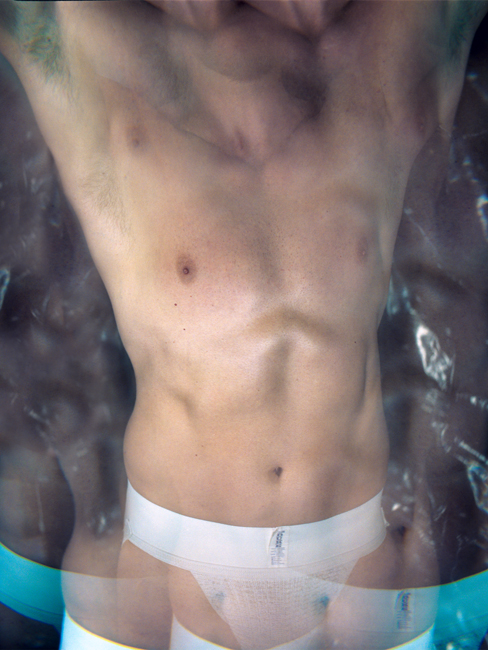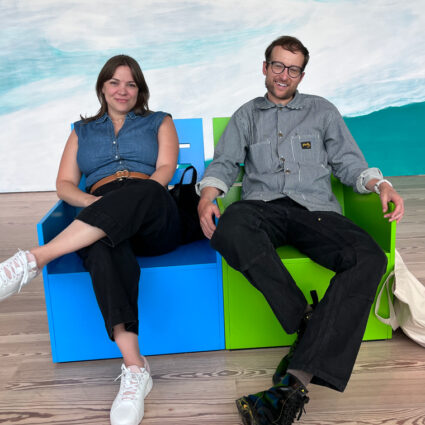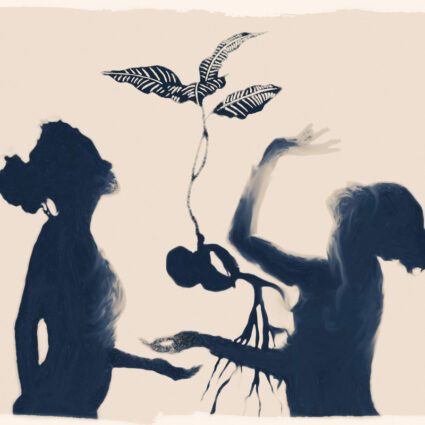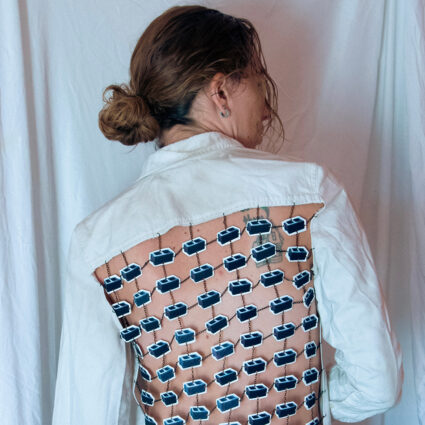Apolo Gomez’s series Exodus fuses the commonplace with something more curious, yielding presentations that seamlessly cohabitate together.
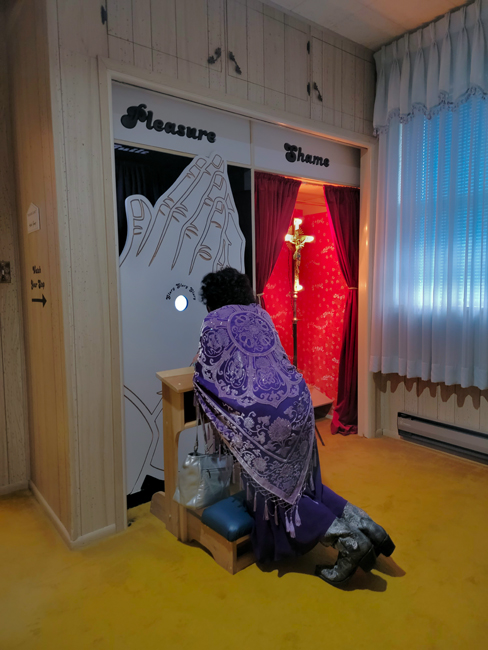
Albuquerque | apologomez.com | @apologomez
represented by Kouri + Corrao Gallery, Santa Fe
Apolo Gomez’s Exodus follows its own rules—where the everyday and something stranger exist in seamless cohabitation. This ongoing Polaroid series, begun in 2021, largely features portraits of friends, lovers, and acquaintances stretched over beds, in full-body latex, in repose, or reaching for something just out of frame. In their tenderness and daring intimacy, they are a mirror. In every image bleached with flash, sculpted by shadow, or multiplied like a kaleidoscope, there is an honesty that is both familiar and rare.
The work is stalked by mortality, too. While first and foremost the collection is a celebration of queerness, vulnerability, and desire, as well as an exploration of masculinity and its trappings, Gomez first came to his craft through a lymphoma diagnosis. Now in recovery, the sudden awareness of his own mortality moved him to begin deliberately documenting people and their stories. Every image, then, is also an act of remembering.
“Emanating desire while holding on to loss” is how subject Francisco J. Galarte described the experience of being photographed by Gomez. Desire, we all know, isn’t very simple at all. It is the suspended moment of hope, tempered, of course, as Galarte describes it, by a sense of doom, the inevitable loss. Its contours are explored in work like Pleasure Closet, an installation in Wo/Manhouse 2022. Two panels suspend the words “Pleasure” and “Shame” where a hassock is stationed in front of a glory hole. Inside, a film is looped that enunciates the cycle of desire, pleasure, and guilt. The complexities of queerness and queer desire are centered in these works, “pieces of a larger story,” as Gomez puts it, “… speak[ing] to the broader struggles of the LGBTQ+ community.”
The words we write and the art we make rarely say exactly what we mean. But Gomez has achieved something surprisingly close to the veracity of existence in Exodus. How strange, how fraught, and how glorious it is to exist in a body. How beautiful for a moment to be captured, to be able to glance back at realities you once knew, a glance back in time.
